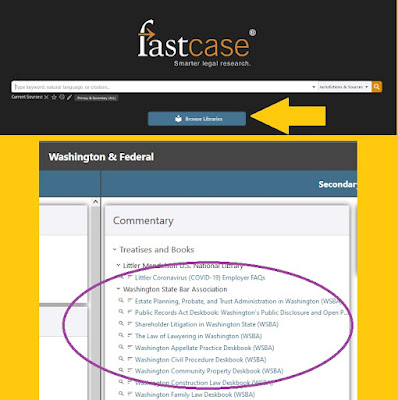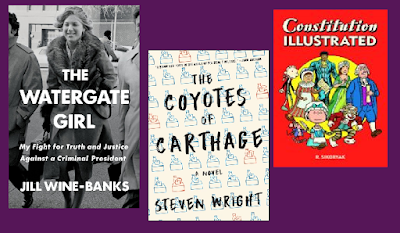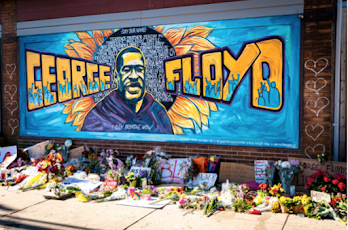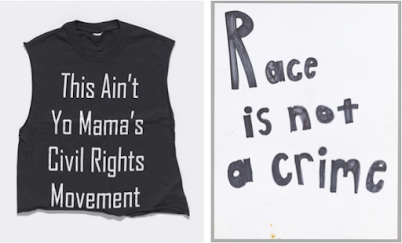In honor of AAPI Heritage Month, I'm highlighting an assortment of books in the law library and the UW system.
You can find hundreds of books about Asia or Asian Americans, using the scholarly lenses of history, sociology, or political science—not to mention novels, poetry, and plays. I looked for a legal connection, and selected memoirs, biographies, and histories that seemed engaging enough that you might want to pick one up, perhaps when exams are over. Many, but not all, are written by Asian Americans or Pacific Islanders.
This list doesn't include books about the Japanese American incarceration during World War II—not because it's not an important topic, but just the opposite: we already have several blog posts on it.
Adrienne Berard,
Water Tossing Boulders: How a Family of Chinese Immigrants Led the First Fight to Desegregate Schools in the Jim Crow South (2016) [
ebook]
Joshua Takano Chambers-Letson, A Race So Different: Performance and Law in Asian America (2013) [ebook]
Robert Chang, Disoriented: Asian Americans, Law, and the Nation-State
(2000) [print] [ebook]
Yves Dezalay & Bryant G. Garth, Asian Legal Revivals: Lawyers in the Shadow of Empire (2010) [ebook] [print]
Andrew Gyory, Closing the Gate: Race, Politics, and the Chinese Exclusion Act (1998) [ebook] [ebook & HeinOnline] [print]
Robert Terry Hayashi, Haunted by Waters: A Journey Through Race and Place in the American West
(2007) [ebook] [print]. "Using
a wide range of materials that include memoirs, oral interviews,
poetry, legal cases, letters, government documents, and even road signs,
Robert Hayashi illustrates how Thomas Jefferson's vision of an
agrarian, all white, and democratic West affected the Gem State's Nez
Perce, Chinese, Shoshone, Mormon, and Japanese residents."
Madeline Yuan-yin Hsu, The Good Immigrants: How the Yellow Peril Became the Model Minority (2015) [print]
Stephanie Hinnershitz, A Different Shade of Justice: Asian American Civil Rights in the South (2017) [ebook] [print]
Estelle T. Lau, Paper Families: Identity, Immigration Administration, and Chinese Exclusion
(2006) [ebook]
Erika Lee, At America's Gates: Chinese Immigration During the Exclusion Era, 1882-1943 (2003) [ebook] [print][print]
Eric Liu, The Accidental Asian: Notes of a Native Speaker (1998) [print; temporary online access during COVID]
Michael W. McCann & George Lovell, Union by Law: Filipino American Labor Activists, Rights Radicalism, and Racial Capitalism (2020) [ebook] (Authors teach at UW and UPS.)
Chris W. Merritt, The Coming Man from Canton: Chinese Experience in Montana, 1862-1943
(2017) [ebook] [print]
Kim Park Nelson, Invisible Asians: Korean American Adoptees, Asian American Experiences, and Racial Exceptionalism (2015) [ebook]
Jonathan Y. Okamura, Raced to Death in 1920s Hawaiʻi: Injustice and Revenge in the Fukunaga Case (2019) [ebook] [print]
Yung-Yi Diana Pan, Incidental Racialization: Performative Assimilation in Law School (2017) [print]
John P. Rosa, Local Story: the Massie-Kahahawai Case and the Culture of History (2014) [ebook]
David E. Stannard, Honor Killing: How the Infamous "Massie Affair" Transformed Hawai'i (2005) [print; temporary online access during COVID].
David E. Stannard, Honor Killing: Race, Rape, and Clarence Darrow's Spectacular Last Case
(2006) [print] (The paperback edition has a slightly different title from the hardback's.)
Jose Antonio Vargas, Dear America: Notes of an Undocumented Citizen (2018) [print]
Michael Withey, Summary Execution: The Seattle Assassinations of Silme Domingo and Gene Viernes (2018) [print] (Author is a Seattle lawyer.)
John R. Wunder, Gold Mountain Turned to Dust: Essays on the Legal History of the Chinese in the Nineteenth-Century American West (2018) [ebook] [print]
Bruce I. Yamashita, Fighting Tradition: A Marine's Journey to Justice (2003) [print]. The book's website includes a brief (4:26) documentary.
Kenji Yoshino, Covering: The Hidden Assault on Our Civil Rights (2006) [print] [temporary online access]






















